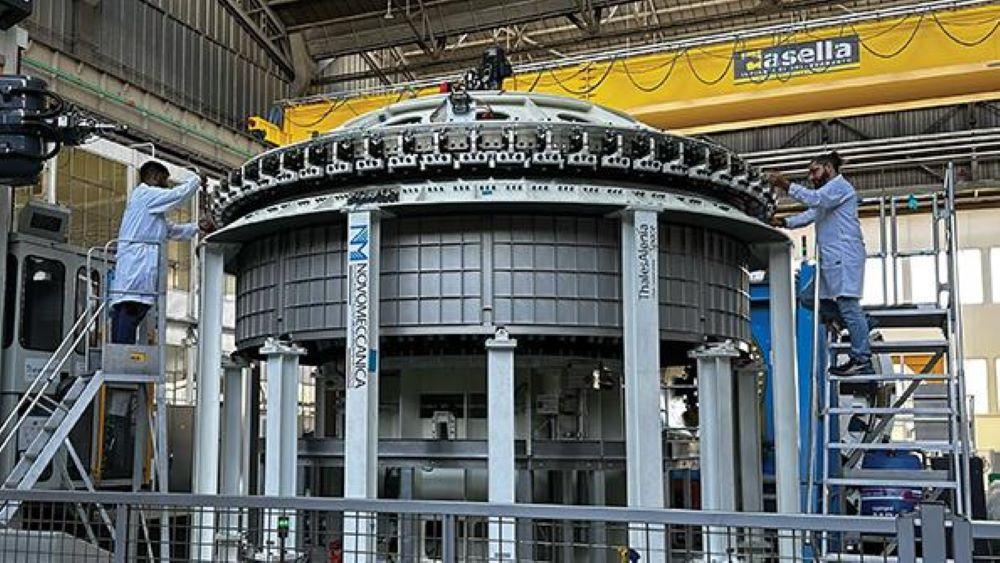
LAS VEGAS–Axiom Space is nearing completion of its Hab One pressure vessel.
The structure forms the basis of the first of two inhabitable modules that are to be connected to the International Space Station (ISS). The structure is being built in Turin, Italy, by Thales Alenia Space.
“The first module shell is effectively completed,” Jason Aspiotis, Axiom’s director of in-space infrastructure and logistics, said at AIAA’s Ascend conference here on Oct. 23. “A lot of the subsystems that will populate the underlying structure–think about life support systems, avionics, propulsion, [guidance, navigation and control systems], power, communications, all that good stuff–we’re developing in a lab in Houston.”
Hab One hatches have also been fabricated, tested and prepared for delivery to Thales Alenia Space to support Hab One pressure testing, the company says.
The first module is to be shipped to Houston by 2024 for final assembly and integration at Axiom Space’s factory at Ellington Airport. The company plans to launch the Hab One module in 2026.
In 2020, NASA granted a fixed-price, indefinite-delivery, indefinite-quantity award to Axiom Space, worth up to $140 million, to develop at least one commercial module to be attached to the ISS.
In 2021, Axiom contracted Thales Alenia Space to build its first two modules for €110 million ($117.4 million). The modules, to initially form the Axiom Station segment of the ISS, were originally scheduled for launch in 2024 and 2025.
Each module is designed to house four crewmembers and has additional volume for research and manufacturing projects.
In total, Axiom plans to attach four modules to the ISS. Prior to the ISS decommissioning, planned for 2031, Axiom’s modules will detach and operate as a free-flying, commercial space station.
Axiom has also been organizing private flights to the ISS, including on behalf of various national space agencies. In September, the company was cleared to take four private crewmembers to the ISS as part of what would be its third private astronaut mission to the space station, planned for no earlier than January 2024.
Axiom says its experience sending private crew and research to the ISS gives it valuable experience for eventually running its own space station.





